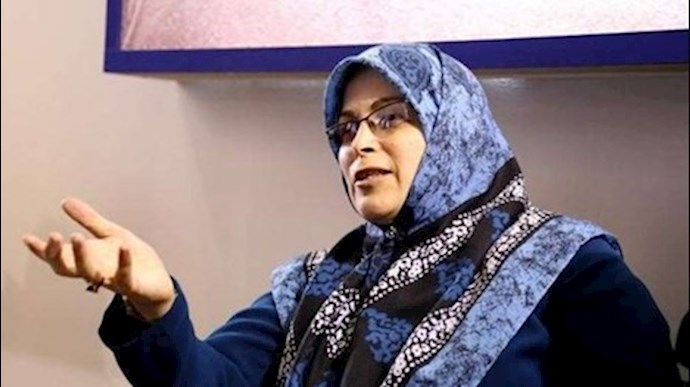Reporting by PMOI/MEK
Iran, March 29, 2021—Azar Mansouri, a member of the Advisory Board of former regime president Mohammad Khatami, acknowledged systematic economic corruption in the Iranian regime, according to the state-run ILNA news agency.
On Saturday, March 27, Mansouri said, “Giving names to years and disregarding the true requirements has only given these nomenclatures publicity purposes and sometimes yielded reverse results. And the year 1400 is no exception to this rule.”
On March 21, in his Nowruz address, regime supreme leader Ali Khamenei declared the Persian year’s slogan as “production support and removing barriers.” Khamenei had declared the previous year as the year of “production leap” and claimed in his Nowruz address that the goal had been reached. But for the Iranian people, the year of “production leap” yielded nothing but more poverty and misery.
Khamenei also stressed in his speech that his regime will take no steps to reducing its nuclear activities and reduce tensions with the international community, a crucial if the regime desires to have sanctions lifted.
“It is impossible to talk about production leap while the sanctions have maintained their impact. No country can achieve a prosperous economy with these sanctions,” Mansouri said in this regard. “We should look at the sanction relief project as a national goal, not a factional one, and we must use all our diplomatic capacity to achieve it.”
It is worth noting, however, that while some regime officials regularly blame economic problems on sanctions, the history of the mullahs’ regime has shown that it is government corruption and not external elements that are the main cause of economic woes. This is a reality that many other officials are acknowledging.
Mohsen Rezaii, the head of the Expediency Council, said on March 6: “The economic mismanagement of the country must end. Since 2013 [the beginning of Hassan Rouhani’s presidency] until now, the people’s purchase power has decreased considerably. An important part of the problems is not due to sanctions but are due to management issues. Negligence has resulted in the devaluation of the country’s currency against foreign currencies. And you can see the conditions of the stock market. Economic managers claims that the people’s lives are spinning just as the centrifuges are. Hearing such things in these conditions is very disturbing.”
Mansouri also acknowledged the systematic and institutional corruption of the mullahs’ rule. “The privatization of the economy that has taken shape over the years and is the biggest obstacle to net production and gross national product in the country must end their monopoly,” she said.
Privatization refers to government officials colluding with their family members and wealthy regime-linked businessmen to buy government businesses at very low prices and making huge profits at the expense of the public.
With regard to the regime’s face-off with the Financial Action Task Force (FATF), Mansouri said, “By delaying the FATF bills, we have created a barrier to financial and banking transactions. This has even caused us to lose the markets of other countries in the region.”
For several years, the regime’s officials and factions have been disputing anti-money laundering (AML) and counter-terrorism financing (CTF) bills that would make the regime conformant with FATF standards. These bills are a key measure to making financial transactions with other countries. But it would also limit the regime’s ability to fund terrorist groups across the world, which has made the issue a hot topic of dispute among regime factions.
In his Nowruz address, Khamenei also called for a clampdown on social media, warning about the Iranian opposition using the medium to organize protests and spread news about the regime’s crimes. Following Khamenei’s remarks, several officials declared plans to restrict social media usage in Iran.
In her remarks, Mansouri warned that restricting social media will have further economic consequences “Social networks and new communication technologies have created very serious capacities for employment and production today,” Mansouri said. “These capacities and opportunities cannot be ignored while the whole world is taking advantage of. Ignoring an opportunity because of a threat or concern that could be managed by culture rather than filtering is not permissible.”
She acknowledged that systematic corruption is a serious barrier to increase the national capital. Accordingly, she called for serious and legal reforms in the governance structure to combat and reduce corruption instead of slogans.
Earlier some government experts denied regime president Hassan Rouhani’s claim that sanctions are the main cause of unbridled inflation and high prices.
The regime's experts and media use the terms "mismanagement, bad management, inadequate management, etc. in the economic field" when referring to the government’s corrupt policies, such as inflate the stock market balloon and emptying people's pockets in the stock market, financing the budget deficit through increasing the prices of people's necessities, increasing the exchange rate, printing banknotes and borrowing from bank resources, wasting billions of dollars of currency under the pretext of imports and other policies that have led to the current situation.





